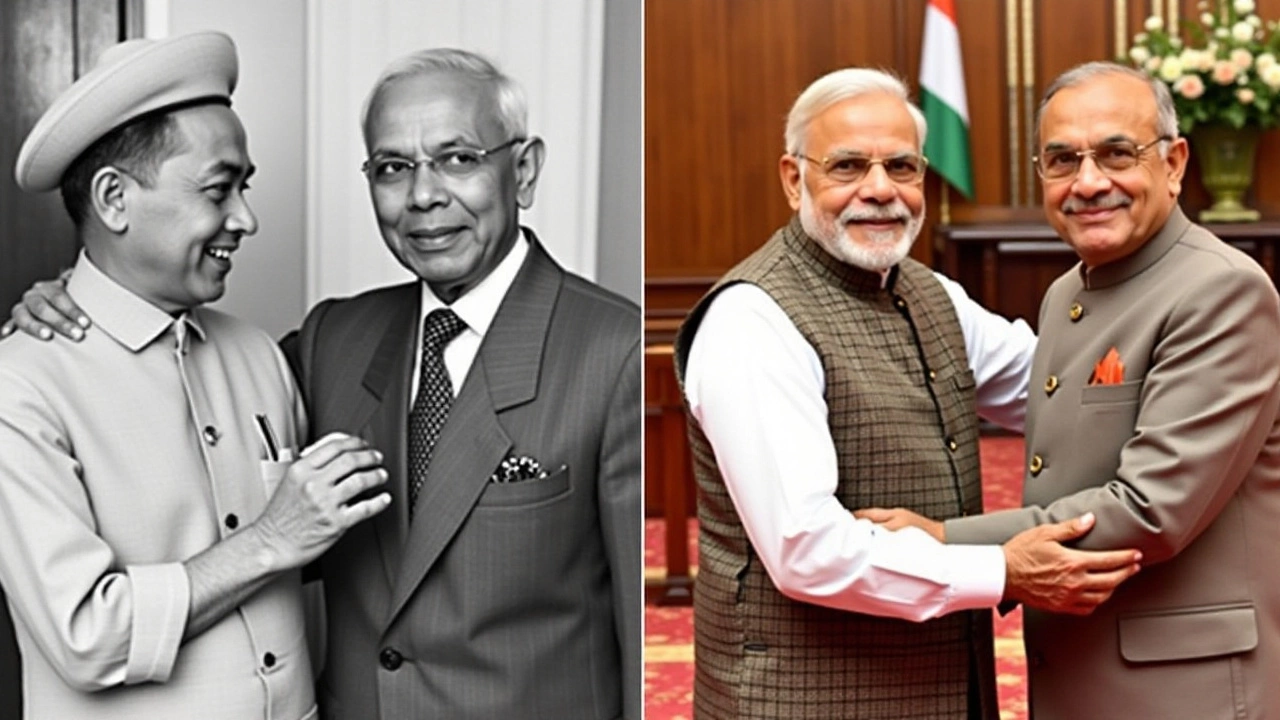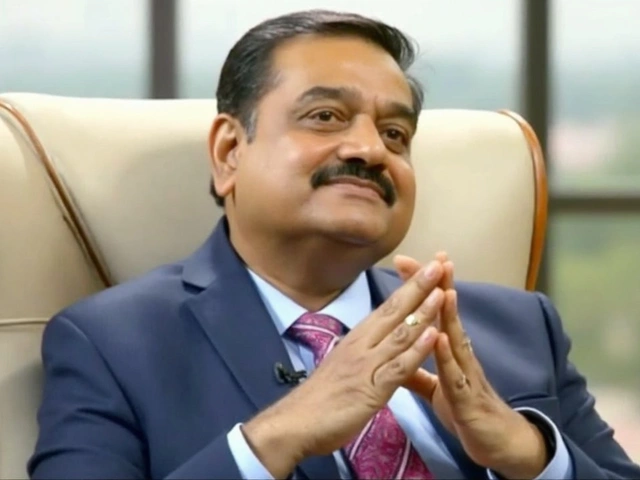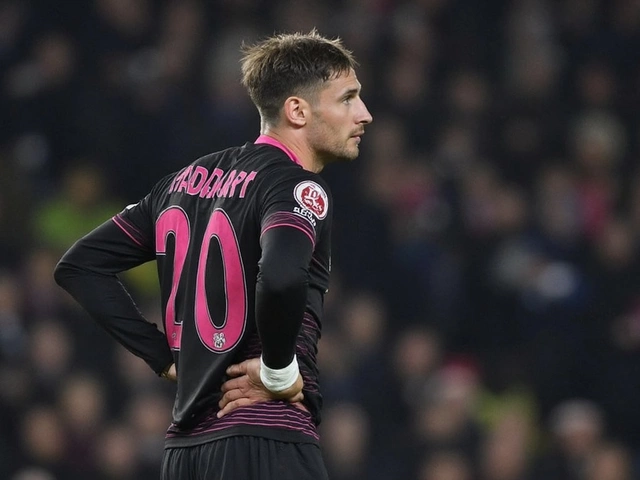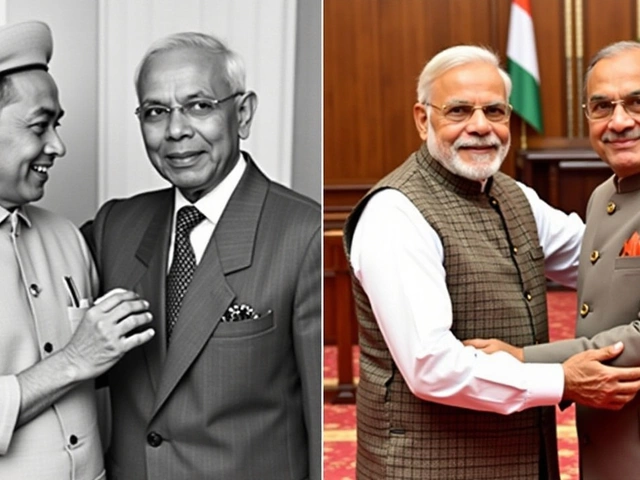Historical Beginnings and Early Alliances
India and Indonesia share a rich tapestry of historical relations dating back to the late 1940s. Following Indonesia's independence, both nations were united by their resolute stances against imperialism and shared values of democracy. The warmth of this early relationship was symbolized by Sukarno, Indonesia's first president and a seminal figure in the country's independence movement, attending India's inaugural Republic Day celebrations as the chief guest in 1950. Then Indian Prime Minister Jawaharlal Nehru, returned this gesture later that year with a state visit to Indonesia, where he signed a Treaty of Friendship in March 1951, advocating for 'perpetual peace and unalterable friendship'. These early nods to camaraderie set a hopeful precedent, celebrating shared geopolitical visions and cultural exchanges between these densely populated Asian giants.
The Tumultuous 1960s
The narrative altered significantly in the 1960s, a decade rife with complex geopolitical chess moves. The thaw in bilateral warmth occurred partially due to Indonesia's growing closeness with China and Pakistan. Nehru's disagreement with Sukarno over organizing a second Bandung Conference unfurled the first fissures in their strong political rapport. The relationship further strained during critical international crises; Indonesia offered Pakistan weaponry during the 1965 India-Pakistan war while displaying little empathy toward India during the 1962 Chinese invasion. Such diplomatic strains trickled down to the populace, resulting in a distressing incident where anti-India sentiments peaked in Indonesia, leading mobs to launch a violent attack on the Indian embassy in Jakarta.
Shifts in Power and Realignments
The seismic changes within Indonesia's political landscape during the mid-1960s played a pivotal role in altering its foreign relations. Sukarno's position weakened following a thwarted left-wing coup attempt in 1965, paving the way for General Suharto's rise to power. This leadership transition marked the beginning of a slow, deliberate mending process of Indo-Indonesian relations. Keen on repairing past disruptions, Suharto extended an olive branch which was reciprocated by New Delhi through trade agreements in 1967. Although the political climate of the era, characterized by Indira Gandhi's alignment with the Soviet Union amidst the US-backed Jakarta regime, dampened quick escalation of bilateral ties.
Renaissance in the Relationship
A transformative revival emerged in the 1980s when Suharto visited India in 1980 as an effort to mend and nurture diplomatic relationships. Correspondingly, the Indian leadership, represented by Indira and Rajiv Gandhi's visits to Jakarta in 1981 and 1986 respectively, showed a similar intention to foster connectivity. Yet it was not until the geopolitical reforms of the 1990s that true progress was reborn, guided by India's 'Look East' policy designed to seek prosperity through closer economic integration and strategic engagement with East Asian countries.
Contemporary Collaborations and Future Prospects
Fast forward to the present day, the tale of Indo-Indonesian ties is experiencing another refreshing chapter. Prime Minister Narendra Modi and President Prabowo Subianto's recent meeting in New Delhi brought forth initiatives that herald a promising cooperative future. The agreement to collaborate on maritime security represents a robust commitment to safeguarding regional waters against rising global threats, while ventures into health, traditional medicine, and digital cooperation highlight mutual benefits drawn from sharing expertise and resources in these areas. Such arrangements point toward a vibrant era of comprehensive bilateral relations anchored in mutual respect and advantageous exchanges.
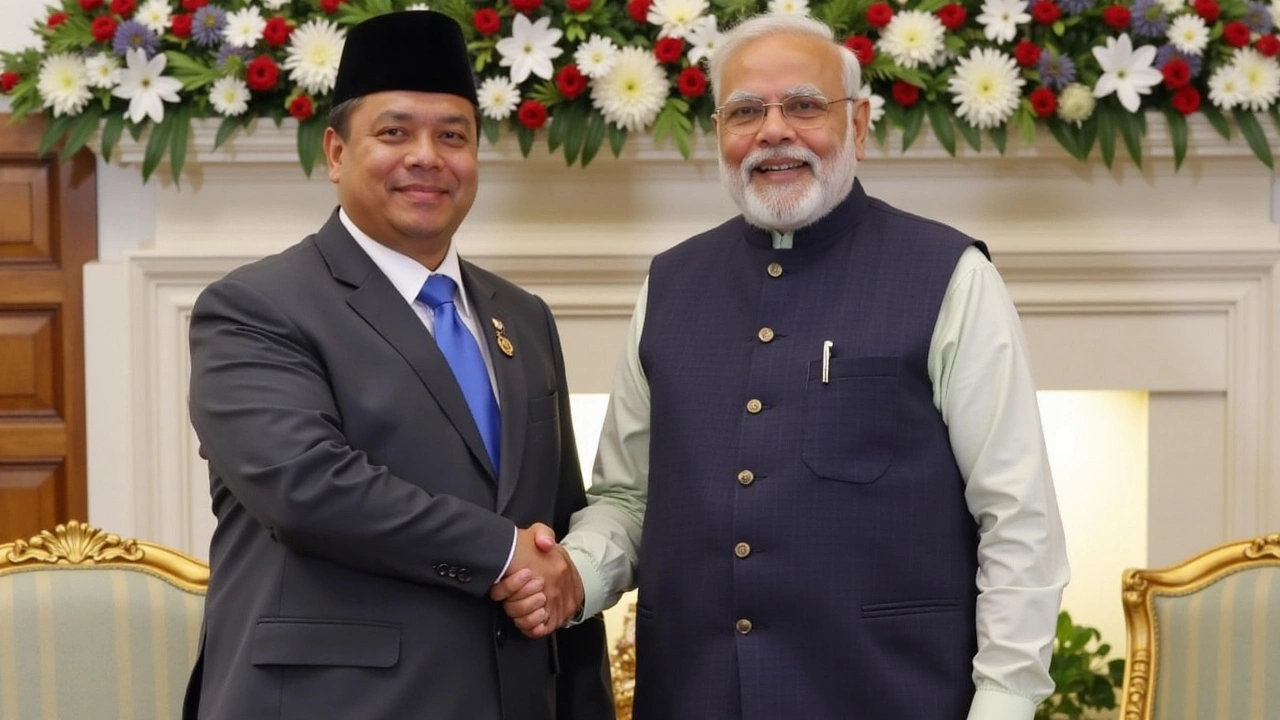
The Broader Implications for Regional Stability
As India and Indonesia continue to solidify their bonds, the implications for regional stability and prosperity are noteworthy. This partnership not only serves the interests of both nations but is also instrumental in fortifying strategic alliances within the larger Indo-Pacific region. With both countries playing significant roles in regional geopolitics, their unified efforts in addressing maritime challenges, enhancing health infrastructure, and digital ecosystems can have far-reaching impacts. As their historical camaraderie transforms into a modern alliance, the evolving India-Indonesia relationship stands as a testament to the enduring power of shared cultural and economic interests amidst the shifting sands of international relations.
